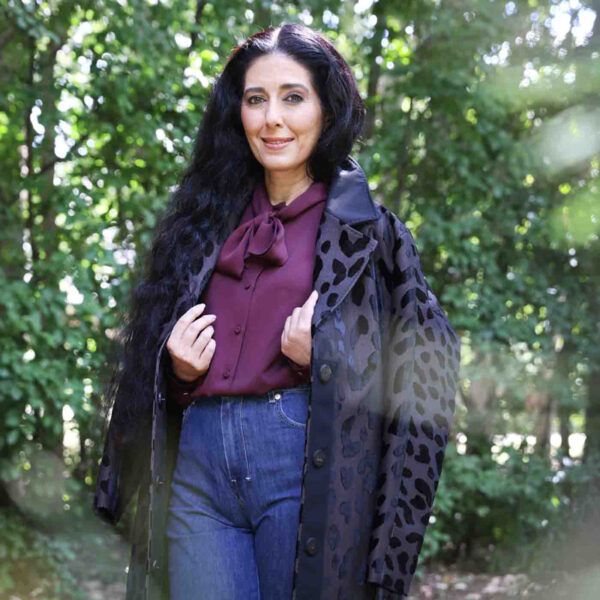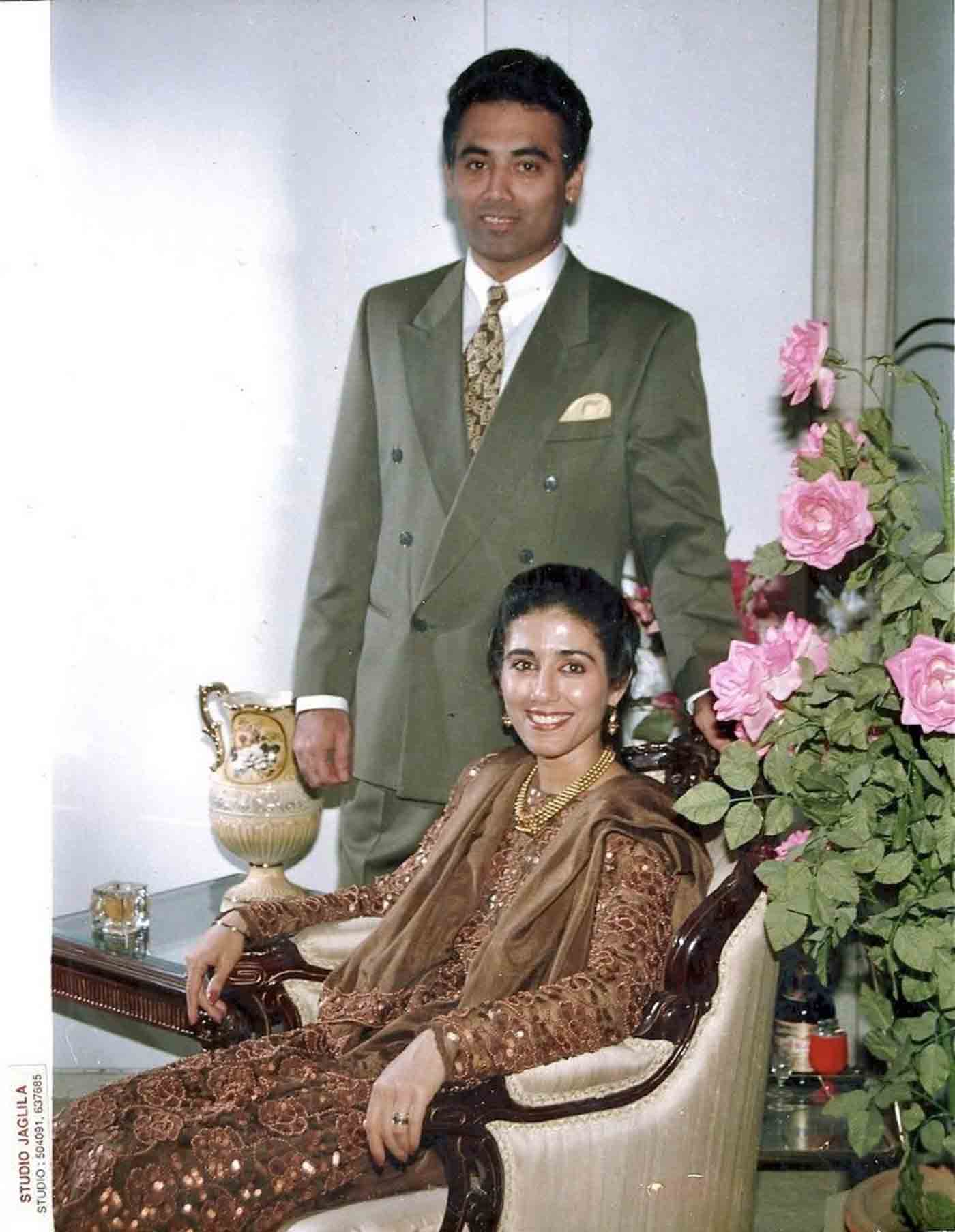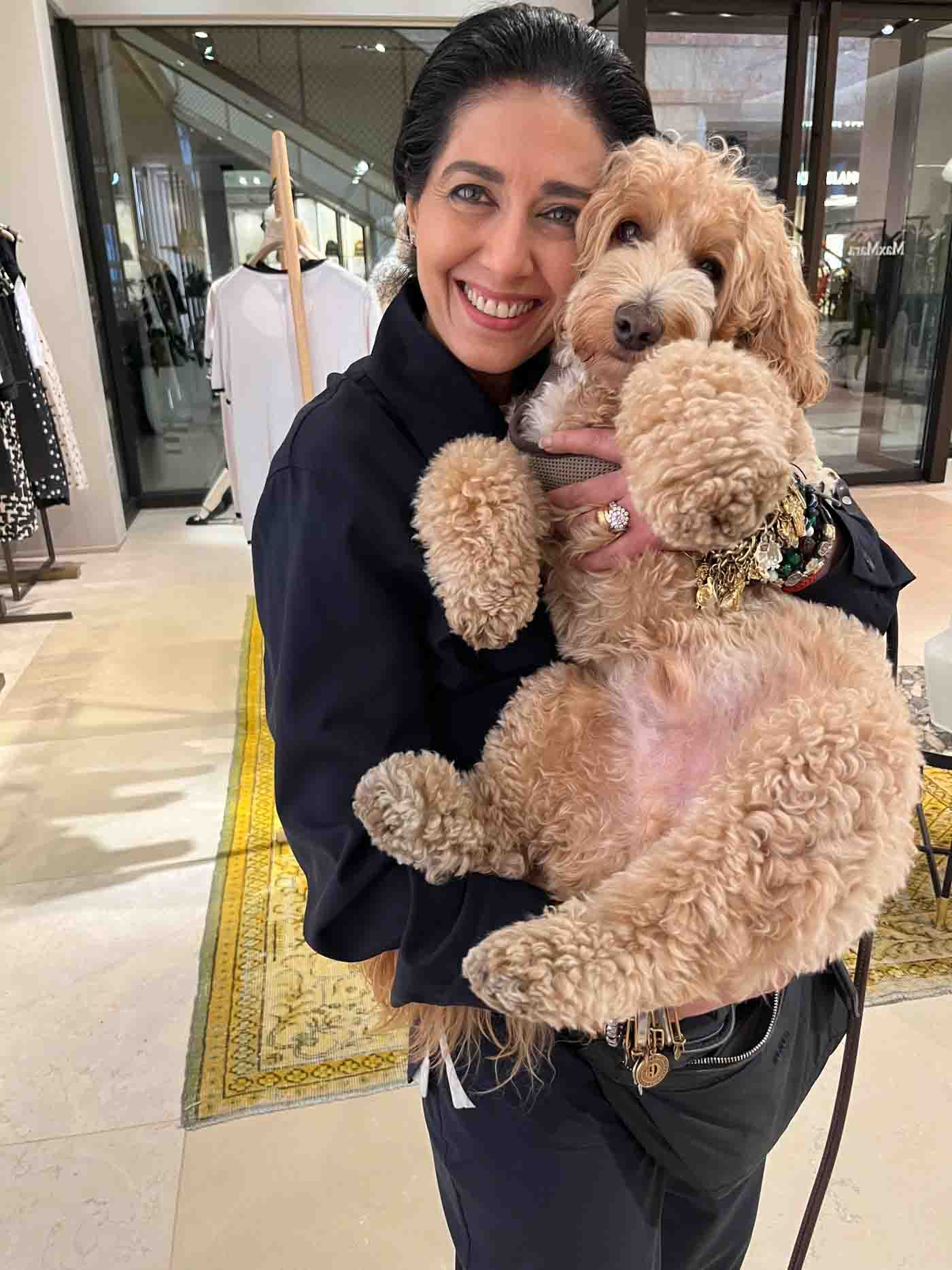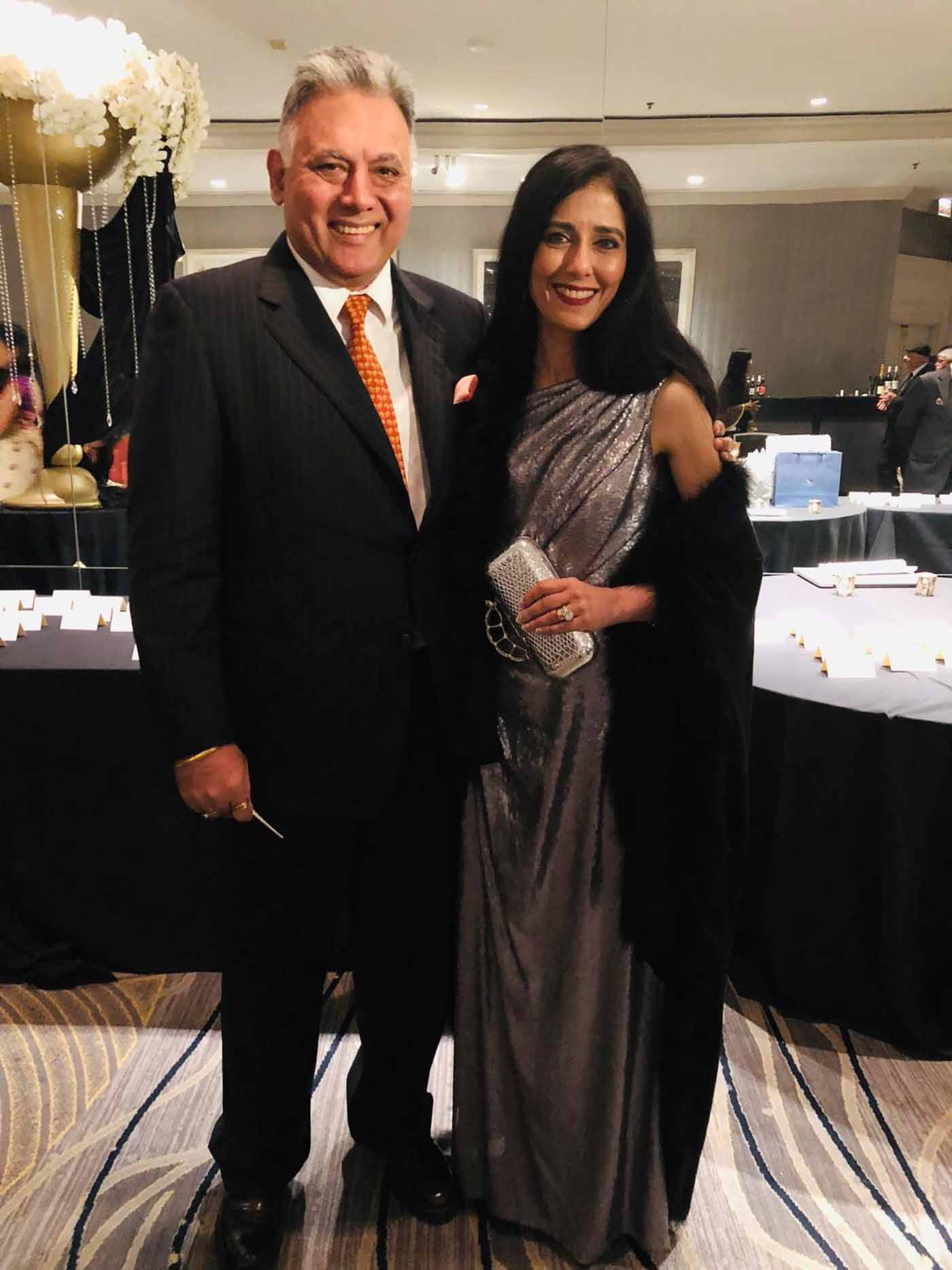FASHIONING A LIFE WELL LIVED
By Ann Marie Scheidler
photography by Katrina Wittkamp
styling by Theresa DeMaria
hair and makeup by Doria DeBartolo
Anit Bindra wearing vintage MaxMara
By Ann Marie Scheidler
photography by Katrina Wittkamp
styling by Theresa DeMaria
hair and makeup by Doria DeBartolo
Anit Bindra wearing vintage MaxMara

AT 16, ANIT BINDRA MET her future husband through her brother’s cricket team. Just a few years later, she found herself on Madison Avenue in New York City, riding into marriage in a seven-day celebration complete with a white horse and 200 guests. It was a fairy tale beginning, but the chapters that followed were about determination, resilience, and discovering her true calling.
It was her husband’s career that brought Bindra from India to the United States, where Bindra—without a work permit—threw herself into volunteering, teaching, and even studying fashion merchandising in an effort to find her footing.



“I really wanted to figure out what I was going to do with my time,” she recalls of her 21-year-old self. With a double major in English and fine arts, her heart was set on something creative, even if her mother, a doctor, had once hoped she’d follow her path into medicine.
Bindra’s first job came by chance. Walking into a small shop in Boston one afternoon, she met Barbara, the store’s owner, who offered her a position as a cashier. Within a year, Bindra was running the women’s sportswear department.
“Barbara saw something in me before I even did. I will never forget her,” she says.
From there, well-timed opportunities just seemed to unfold. Rodier Paris recruited her as a store manager. Later, Country Road Australia (owned by Harrods of London) came calling and offered her a new adventure. Retail became more than a job to Bindra—it was a passport, a flexible career she could take with her as her husband’s work moved them around the country.
But the retail industry could also be ruthless. Just two days after September 11, 2001, Country Road abruptly announced its exit from the U.S. market, giving Bindra one day’s notice to close everything down. “I was devastated,” she remembers. She decided to visit her family in India to reset.
In one of those serendipitous moments that shapes a career, Bindra was at a Staples store late one night making copies of her passport and traveling papers for India when she got a call from Karen Kleiman of Max Mara.
“I want you to come and talk to us,” Kleiman said. Max Mara hired Bindra on the spot. Bindra found her professional home at Max Mara and never looked back.
Max Mara, the Italian luxury fashion house, was everything Bindra could have hoped for. Family-owned and guided by values of craftsmanship, sustainability, and quiet elegance, the brand gave her not just a career but a calling.
“The way they treat their people is unlike anywhere else,” she explains. “I was never a number. I had a name and an identity.”

Max Mara’s legacy is rooted in its first designs—a camel coat and a red suit—and today it is one of the most respected luxury houses in the world. But what strikes Bindra most is its blend of innovation and humanity. From upcycling camel hair fibers to reduce waste to embracing technology without losing personal connection, Max Mara has grown while others have faltered.
“My commitment here is 100 percent. I can call anyone in New York, tell them I need something for a client, and they will search the world over to find it,” she says. “That’s how much they care.”
For Bindra, the magic of her work lies in transformation.
“I help my clients step out of their boxes,” she says. “You might only see yourself in a certain kind of jacket, and then you try something backless, or strapless, and suddenly you feel like a whole new person. That’s the fun. That’s what keeps me going.”
Nearly four decades into her career that has spanned multiple cities, her passion hasn’t dimmed.
“Almost 39 years of doing this and I still love it,” she says with a smile. Today, Bindra commutes almost daily from her Lake Forest home to Max Mara’s store in the 900 North Michigan Shops building on the Magnificent Mile. “My husband and I love the peace and quiet and our walks with our two dogs with a view of the lake. We would never trade our life in Lake Forest for a shorter commute to work.”
Looking back, Bindra reflects on the fears and insecurities of her 21-year-old self. Her advice to that young woman? “Embrace everything. Be open to every single experience you can get. Write it down. Remember it. Your insecurities make you stronger. Everyone has them. Accept that. Acknowledge it. That fear becomes your best ally.”
And today, even her mother—the one who once urged her daughter toward a career in medicine—admits that Bindra chose the right path.
“My mom finally says she thinks I’m doing better now than if I had been a doctor,” she laughs.
Sign Up for the JWC Media Email